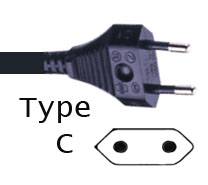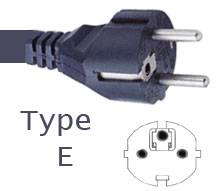Madagascar, located off the southeast coast of Africa, is a biodiversity hotspot renowned for its unique flora and fauna, stunning landscapes, and vibrant cultural heritage. From the otherworldly limestone formations of Tsingy de Bemaraha to the lush rainforests of Masoala National Park and the white sand beaches of Nosy Be, Madagascar offers travelers an unparalleled adventure. Explore the fascinating wildlife, including lemurs, chameleons, and endemic bird species, or immerse yourself in the rich traditions of the Malagasy people. With its untouched natural beauty, warm hospitality, and sense of adventure, Madagascar beckons visitors to explore its enchanting landscapes and discover its hidden treasures.
Ultimate Madagascar Travel Guide
Destinations
Best time to go
The best time to visit Madagascar is during the dry season, which runs from April to October. During this time, the weather is generally cooler and drier, making it ideal for outdoor activities and wildlife viewing. However, Madagascar’s climate varies depending on the region, so it’s essential to research specific destinations before planning your trip.
Average Temperature By Month
January: 24°C to 30°C (75°F to 86°F)
February: 24°C to 30°C (75°F to 86°F)
March: 24°C to 29°C (75°F to 84°F)
April: 23°C to 28°C (73°F to 82°F)
May: 21°C to 26°C (70°F to 79°F)
June: 19°C to 24°C (66°F to 75°F)
July: 19°C to 23°C (66°F to 73°F)
August: 19°C to 24°C (66°F to 75°F)
September: 20°C to 25°C (68°F to 77°F)
October: 21°C to 27°C (70°F to 81°F)
November: 22°C to 28°C (72°F to 82°F)
December: 23°C to 29°C (73°F to 84°F)
What To Expect
Time Zone:
Madagascar operates on East Africa Time (EAT), which is three hours ahead of Coordinated Universal Time (UTC+3).
Currency:
The official currency of Madagascar is the Malagasy Ariary (MGA). While some hotels and tourist establishments may accept euros or US dollars, it's advisable to carry local currency for smaller purchases and when visiting rural areas.
Language:
Malagasy and French are the official languages of Madagascar, with Malagasy being the most widely spoken. English is also spoken in tourist areas and among the younger generation, but knowledge of French or Malagasy can be helpful for communication with locals.
Airport:
Ivato International Airport (TNR) in Antananarivo is the main international airport serving Madagascar. It offers connections to destinations in Africa, Europe, and other parts of the world. Additionally, several domestic airports serve regional flights within Madagascar.
How To Get Around
Domestic Flights: Domestic flights are available between major cities and regional airports in Madagascar. Several airlines operate domestic routes, providing convenient connections to remote areas of the country.
Taxis: Taxis are a common mode of transportation in Madagascar, particularly in urban areas like Antananarivo. It’s advisable to negotiate fares in advance or ensure that the meter is used.
Car Rental: Renting a car is possible in Madagascar, but it’s essential to be aware of road conditions and driving hazards, such as potholes and erratic driving behavior. Four-wheel-drive vehicles may be necessary for traveling in remote areas.
Public Transportation: Public transportation in Madagascar includes buses, minibusses (known as “taxi-brousses”), and bush taxis. While these options are affordable, they may be crowded and less reliable, particularly in rural areas.
Average Temperature By Month:
January: 24°C to 30°C (75°F to 86°F)
February: 24°C to 30°C (75°F to 86°F)
March: 24°C to 29°C (75°F to 84°F)
April: 23°C to 28°C (73°F to 82°F)
May: 21°C to 26°C (70°F to 79°F)
June: 19°C to 24°C (66°F to 75°F)
July: 19°C to 23°C (66°F to 73°F)
August: 19°C to 24°C (66°F to 75°F)
September: 20°C to 25°C (68°F to 77°F)
October: 21°C to 27°C (70°F to 81°F)
November: 22°C to 28°C (72°F to 82°F)
December: 23°C to 29°C (73°F to 84°F)
Plugs:
Madagascar uses electrical outlets that are compatible with Type C, E, and J plugs. Type C plugs have two round pins, while Type E and J plugs have two round pins and a grounding pin. The standard voltage is 220 volts AC, with a frequency of 50Hz.
VPN:
While internet access in Madagascar is generally available, using a virtual private network (VPN) can provide added security and privacy, especially when accessing public Wi-Fi networks.
Safety:
Madagascar is considered a relatively safe destination for travelers, but it's essential to take standard precautions to ensure your safety and well-being. Be mindful of your belongings, particularly in crowded areas and when using public transportation. Avoid walking alone at night, especially in poorly lit areas, and be cautious in unfamiliar surroundings. Additionally, stay informed about local customs and traditions, and respect the cultural diversity of Madagascar's population.
Credit Cards and Banks
Credit Cards:
Credit card acceptance in Madagascar is limited primarily to major hotels, upscale restaurants, and some larger stores in urban areas like Antananarivo and Nosy Be. Visa and MasterCard are the most widely accepted, but even they may not be accepted everywhere. It’s advisable to carry enough cash, especially when traveling to rural areas or smaller towns where card acceptance is rare.
ATMs:
ATMs can be found in major cities and tourist areas in Madagascar, but they may be less common in rural or remote regions. Antananarivo, the capital city, and popular tourist destinations like Nosy Be and Diego Suarez have ATMs where you can withdraw Malagasy Ariary (MGA). Be sure to withdraw enough cash when you have the opportunity, as ATMs may be scarce in some areas.
Currency Exchange:
The currency of Madagascar is the Malagasy Ariary (MGA), which is divided into 5 iraimbilanja. While some banks and currency exchange bureaus in major cities will exchange foreign currency for Ariary, it’s recommended to exchange money at official outlets to avoid scams or counterfeit currency.
Banks:
Major banks in Madagascar include:
- Bank of Madagascar (Banky Foiben’i Madagasikara): The central bank of Madagascar, it regulates the country’s financial institutions and issues the national currency.
- BNI Madagascar (Banque Nationale pour le Commerce et l’Industrie): One of the largest commercial banks in Madagascar, BNI offers a range of banking services including savings accounts, loans, and foreign exchange.
- BFV-Société Générale: This international bank operates branches in Madagascar, providing various banking products and services for individuals and businesses.
Traveler’s Checks:
Traveler’s checks are not commonly accepted in Madagascar, and their usage is limited. It’s recommended to carry cash or use credit/debit cards for transactions.
Tips for Banking in Madagascar:
- Notify your bank before traveling to Madagascar to avoid any issues with card usage abroad.
- Keep your PIN and card information secure, and be cautious when using ATMs, especially in secluded areas.
- Carry small denominations of Ariary for smaller purchases, as change may be limited.
- Consider using alternative payment methods like mobile money or pre-paid travel cards for convenience.
By familiarizing yourself with the banking system in Madagascar, you can ensure a smooth and hassle-free financial experience during your travels in the country.
Locations
Madagascar
TRAVEL FACTS
US State Dept Travel Advisory
The US Department of State currently recommends US citizens exercise increased caution in Madagascar due to crime and civil unrest. Some areas have increased risk.
https://travel.state.gov/content/travel/en/traveladvisories/traveladvisories.html
Passport/Visa Requirements
For the latest passport and visa requirements for this country, please consult the U.S. State Department’s “Learn About Your Destination” search tool, available through the link below.
US Embassy/Consulate
(+261) 33 44 320 00; US Embassy Antananarivo, Lot 207 A, Point Liberty, Andranoro, Antehiroka, 105 Antananarivo, Madagascar; https://mg.usembassy.gov/
LGBTQIA+ Travelers
Telephone Code
261
Local Emergency Phone
Police 117, Fire & Rescue 118
Vaccinations
The CDC and WHO recommend the following vaccinations for Madagascar: hepatitis A, hepatitis B, typhoid, yellow fever, rabies, meningitis, polio, measles, mumps and rubella (MMR), Tdap (tetanus, diphtheria and pertussis), chickenpox, shingles, pneumonia, influenza, and COVID-19.
Climate
Tropical along coast, temperate inland, arid in south
Currency (Code)
Malagasy ariary (MGA)
Electricity/Voltage/Plug Type(s)
220 V / 50 Hz / plug types(s): C, E


Major Languages
French, Malagasy, English
Major Religions
Christian, indigenous, Muslim
Time Difference
UTC+3 (8 hours ahead of Washington, DC, during Standard Time)
Potable Water
Opt for bottled water
International Driving Permit
Suggested
Road Driving Side
Right
Tourist Destinations
Ile Sainte Marie; Isalo National Park; Tsingy de Bemaraha; Avenue of the Baobabs; Royal Hill of Ambohimanga
Major Sports
Soccer, rugby, track and field, basketball, tennis
Cultural Practices
Personal space is much less than an arms length away unless you are sick. Eye contact is usually limited between the majority of the separate groups of Madagascar, mainly out of respect. If you point your index finger it is rude unless it is bent.
Tipping Guidelines
Tipping is expected for tour guides and drivers. Tip the guide the equivalent of 15,000-20,000 AR ($7-10 USD) per day and the driver 5,000-10,000 AR (about $5 USD) per day. Bellboys and housekeepers should receive about 2000 AR per bag or per day as a tip.
Souvenirs
Vanilla, baobab seeds, Batik/handwoven fabric and hand-beaded slippers; gold or silver hairpins, brooches, and other jewelry; pewter goods
Traditional Cuisine
Romazava — beef and green leaves stew
Please visit the following links to find further information about your desired destination.
World Health Organization (WHO) – To learn what vaccines and health precautions to take while visiting your destination.
US State Dept Travel Information – Overall information about foreign travel for US citizens.
To obtain an international driving permit (IDP). Only two organizations in the US issue IDPs:
American Automobile Association (AAA) and American Automobile Touring Alliance (AATA)
How to get help in an emergency?
Contact the nearest US embassy or consulate, or call one of these numbers:
from the US or Canada – 1-888-407-4747 or from Overseas – +1 202-501-4444
Central Intelligence Agency.
The World Factbook.
/the-world-factbook
(May 8, 2024)



